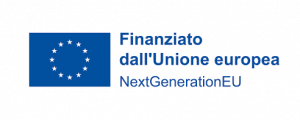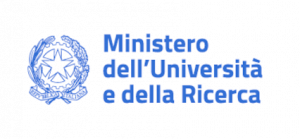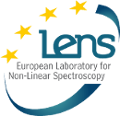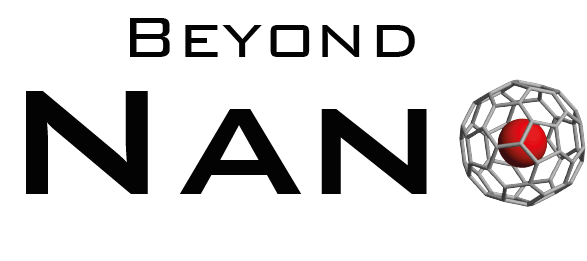Research Infrastructures
The I-PHOQS Project is based on the networking of four Infrastructures
European Laboratory for Non-linear Spectroscopy (CNR-LENS) - was founded about 30 years ago as a European research centre providing advanced laser and spectroscopic facilities for researchers from European countries and promoting the exchange of ideas, scientific techniques, and technical skills. CNR-INO (Istituto Nazionale di Ottica) is the major Italian Institute in the field of atomic, molecular and optical physics. The CNR-INO-LENS infrastructure was readily established with financing from MUR to cover national top-level research in such common thematic areas. Since its foundation, LENS is part of the European network "LASERLAB-Europe" a Consortium that brings together 35 national laser research infrastructures from 18 countries. One of its main objectives is to consolidate and enlarge the European Research Area in laser-based inter-disciplinary science by reaching out to neighbouring scientific communities and by assisting the development of new laser research infrastructures at national and European level. At present, LENS has three main research areas: Biophotonics, Photonic Materials and Quantum Science&Technology. In turn, excellent Science is the key to create new technologies: in the last 10 years, LENS inspired the creation of at least 6 start-up companies, all of them still alive and growing. Within the Physical Sciences&Engineering area, LENS is a key player in the framework of the EU Flagship Program on Quantum Technologies and has hosted 11 scientists awarded with ERC-European Research Council grants. Read more
The Extreme Light Infrastructure (CNR-eli) - The “Extreme Light Infrastructure” ELI-ERIC,part of the European Research Infrastructure Consortium (ERIC) is implemented in Czech Republic (Prague) and Hungary (Szeged), was born from a coordinated effort of several European countries. Italy is a founding member of the ERIC and CNR is the representing entity in the ERIC general assembly. Since the ELI preparatory phase, CNR has participated to the ELI design and implementation (and presently in the operation) with the “Istituto di Fotonica e Nanotecnologie” (IFN units in Milano and Padova) and the “Istituto Nazionale di Ottica” (INO units in Pisa and Firenze). Since 2010, the Ministry of University and Research, through the “FOE International Activities” annual budget specifically dedicated to ELI, has been funding IFN and INO units for in-house research and user training in strict relation and synergy with the ELI project. This resulted in establishing and strengthening an integrated research infrastructure, giving rise to a CNR node under the ELI umbrella. CNR-ELI (IFN/INO) covers research topics in the field of lasers and photonics, mainly focused on: (i) high intensity laser-matter interactions and XUV optics; (ii) high precision spectroscopy via ultra-stable and wide spectral band laser sources. Read more
Materials and processes BEYOND the NANOscale (CNR-Beyond NANO) - is a research infrastructure integrating in a perfectly complementary way the best skills present in the CNR structures of southern Italy in the field of advanced materials, and nanotechnologies and photonics. The nodes participating to IPHOQS are the “Istituto di Microelettronica e Microsistemi” (IMM) of Catania/Messina, the “Istituto di Nanotecnologia” (NANOTEC) of Lecce/Cosenza. Beyond-NANO is equipped with state-of-the-art instrumentation for the fabrication and nanoprocessing of innovative nanostructured materials, their advanced structural characterisation and optical studies. More specifically for this project, the capabilities refer to nonlinear optics in strong light-matter interacting systems, quantum photonics, photovoltaics, electro-optic and photonic devices, as well as technologies and characterization of biophotonic materials and sensors Read more
The Center for Ultrafast Science and Biomedical Optics (PoliMI-CUSBO) Facility was created more than twenty years ago, in 2001, by joining systems and infrastructures, focused on lasers and related applications, at the Department of Physics, Politecnico di Milano. The unique instrumentation available and the critical mass granted the International status of “Large Scale Infrastructure” by the EU in 2002, offering access to users. This status then continued uninterruptedly within the LASERLAB-Europe network (https://www.laserlab-europe.eu/), comprising key laser facilities in Europe from 18 countries. CUSBO is listed in the Italian Roadmap for Research Infrastructure “Piano Nazionale delle Infrastrutture di Ricerca”. Due to success in securing EU grants (also many ERC projects), CUSBO has experienced a steady growing in key instrumentation, human resources, and physical spaces (laboratories) made available regularly by Politecnico di Milano by expanding on new renovated adjacent spaces. The actual surface area occupied by the laboratories is over 700 m2, with more than 30 staff units, supported by PhD students and post-docs. CUSBO Facility has consolidated over the years an excellent positioning on two main lines, that are (i) ULTRAFAST SCIENCE, for the development of ultra-short pulse laser sources and spectroscopic techniques, with applications in atomic and molecular physics, condensed matter physics and systems with reduced dimensionality; (ii) BIOMEDICAL OPTICS, for the development of innovative photonic systems for imaging, fluorescence spectroscopy and diffuse optical spectroscopy, with applications in biomedical research, clinical diagnostics, cultural heritage and food quality.






